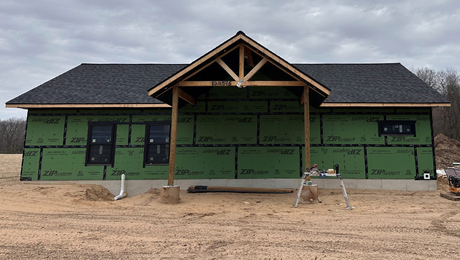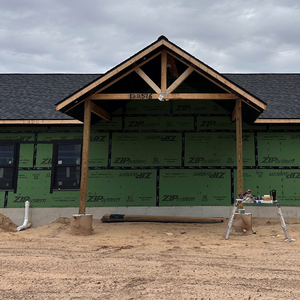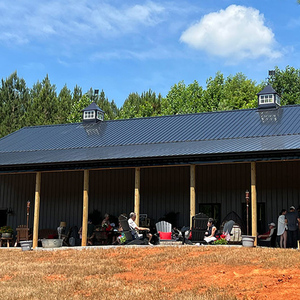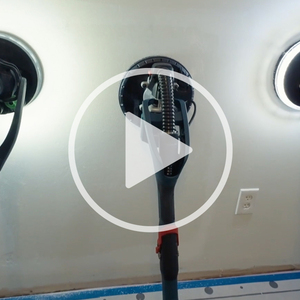*
We are custom builders and renovators. all of my homes have been built under contract. I want to do a sped building program…. need some advice on how to get started in this area. How to buy land or ways to find and control lots. This is pretty basic stuff for most builders but for me it seems very risky since I’ve only been building on contract.
Interested in any tips or help in this area.
Thanks Bill
Discussion Forum
Discussion Forum
Up Next
Video Shorts
Featured Story

Listeners write in about earning trade-work merit badges and ask questions about radiant cooling, indoor air quality, and radon-control systems.
Featured Video
Builder’s Advocate: An Interview With ViewrailRelated Stories
Highlights
"I have learned so much thanks to the searchable articles on the FHB website. I can confidently say that I expect to be a life-long subscriber." - M.K.
Fine Homebuilding Magazine
- Home Group
- Antique Trader
- Arts & Crafts Homes
- Bank Note Reporter
- Cabin Life
- Cuisine at Home
- Fine Gardening
- Fine Woodworking
- Green Building Advisor
- Garden Gate
- Horticulture
- Keep Craft Alive
- Log Home Living
- Military Trader/Vehicles
- Numismatic News
- Numismaster
- Old Cars Weekly
- Old House Journal
- Period Homes
- Popular Woodworking
- Script
- ShopNotes
- Sports Collectors Digest
- Threads
- Timber Home Living
- Traditional Building
- Woodsmith
- World Coin News
- Writer's Digest


















Replies
*
We are custom builders and renovators. all of my homes have been built under contract. I want to do a sped building program.... need some advice on how to get started in this area. How to buy land or ways to find and control lots. This is pretty basic stuff for most builders but for me it seems very risky since I've only been building on contract.
Interested in any tips or help in this area.
Thanks Bill
*
Tim - try to find a lender in your area that likes to write "HUD 203K" loans. Continental Mortgage wrote the one we got a few years ago, but we have a friend who is a mortgage banker for another company who hates writing them, and admitted they are great loans, but way too finicky to get right for their company.
Anyway, check it out. They will lend you up to 85% of 110% of the after rehab value of the building. So in effect, you can borrow the money to hire yourself, to rehab a building, then rent it out, or sell it, whatever. Another great thing about the mortgage (at least the one we got) is they are FHA assumable, so you can sell the equity and the loan will be insured, making the building a whole lot easier to sell. We got a 30 year, fixed rate, bought it way down, and get a nice return on our initial investment every month (plus the inflation driven equity gain on the property)
We stumbled onto this loan while buying a duplex that needed work, and I really think you could make a good living and build equity by building a business around these rehab loans.
I only have a pamphlet from 1994 but here is the address I have;
U.S. Department of Housing and Urban Development
7th & D Street S.W.
Washington, D.C. 20410-3000
the pamphlet # might be HUD 1220-H(2)
On the bottom of the last page it says "GPO : 1995 0 - 164-041". I guess that might be "Government Printing Office" but I'm not certain. Anyway, check out those 203K loans, they are sweet.
*One of the problems you will find is that if a real estate market is hot, sellers will seldom "discount" a house by the amount it takes to fix it up. If the market is not hot, then sales of a rehabbed house can be difficult. Fixer-uppers are often a better deal for people who intend to live there.
*We looked into this seriously a couple of years ago. Three of us were interested in doing exactly what you're considering. We were planning on getting a 203K to rehab a house. Borrow the cost of the house, materials, and our "salary" and then sell the house at a profit if possible.Two problems: We'd have to pay the mortgage until the house sold which might take a long time.And all the run down houses we looked at were in run down neighborhoods and all the houses we looked at in nice neighborhoods were nice houses.We never found the right house.
*B. Dough,This is the second time I've seen you break into someone else's thread with a question. Do you not know how to post your own topic? I think they show you how to do it here...........duh.Ed. Williams
*Try to get to know some realtors, preferably one or two who concentrate on selling (as opposed to listing) and (possibly) who focus on 1st time home buyers (depending on what end of the market you want to work in.There are probably more fixer-uppers in the lower end of the market, but not as much profit per job.Consider becoming an associate member of your local real estate association and getting access to the MLS system. Then, check every day for new listings and check them out quickly. The good prospects tend to go quickly. (In my area at least, there are several realtors who focus primarily on "flipping" fixer-uppers.)develop a database of listings, using neighborhood, sq ft and asking $ (and final selling prices, if that's published in your area.) Over time, that willgive you a quick check for possible good values.Find out which local realtors are known for pricing their listings to move and which are known for pricing high to get listings.Local home inspectors can also be a good source of info, including about realtor reputations and which areas are hot and which are seeing a lot of 1st time buyers, although probably not for pricing.Bob
*I am slowly beginning the process of making the sideways move from roofing contractor into this industry.I had actually planned to do this long ago,but it has taken me this long to develope the skills,credit,and cash to make it all viable.All though I don't do any work anymore on rentals,it has been my privlege to meet several groups that are VERY successfull at this.One group works on a lease option method.They buy houses,fix them up,and lease them to people with marginal credit/no down payment. The lease is several hundred dollars/month higher than comparable rent----but several hundred dollars a month is credited towards a down payment if the tenant exercises the option.This group tells me they buy a house,re/hab and have a family installed with a lease option every 6 weeks----year round.Another group I know(father/ son team),Buys houses---re/habs and then rents out the house---usually Section 8.They are VERY successfull at this with a couple HUNDRED units.VERY businesslike,very profitable. A third guy I know,buys,rehabs,re-sells.He will carry the financing. He makes money off the sale price and off the financing.Believe it or not,all of these groups have been very helpfull to me. Each one volunteered actually how they do it,how they got started,offered tons of advice and how-to info.Each group is successfull and has no fear of competition.The same house might work for one group but not another cause they each have different methods.The one common denominator they all stressed is that you make your money BEFORE you buy the property.Know exactly what you are gonna do with the house before you buy it.The real money is made in the buying and selling process. The time spent with a hammer and paintbrush is much less important than the pencil and paper.Many,many books out there on various aspects of this, Most are crap.Good Luck,Stephen
*Don't forget the transactions costs involved in buying AND selling. They will eat into the money both ways.And heed the advice about knowing the local market. Bargains go very quickly.I tried buying, rehabing and selling one house. It didn't go very well.
*There are a couple of companies in this area that do what Steven HAzlett suggests. Most buy buildings in bad shape in a run section of town, do the minimum necessary to get a CO and rent to low income tenents. Whether they get involved in Section 8, I don't know. They seem to be doing well but it's not the quality of work I'd be happy with or the clientelle I want to work with.Evictions, court, police, overdue rent. Was a super for an apartment complex once, never again.
*I think you really need to cut the realtors out of the loop at both ends to do this. Dont be afraid to knock on the doors of houses you are interested in. If they cant afford to maintain the house and it cant be conventionally financed, you can possibly help each other out for a win win.It's my understanding that the HUD 203 K loans are no longer available for non-owner occupied. If anybody finds out different, I'd sure appreciate it if they posted the information.JonC
*Found this from long ago, Joe H Avram Gimbel "rehab an old house for profit?" 5/16/99 12:59am
*In my city,this type of work is done in a fairly wide range of neighborhoods.Some are quite nice,many are very solid middle class,but most are in less desireable area's.As far as the quality of the work goes,that to varies. The work done to the house varies according to which group has bought itand what they are going to do with the house.The group renting section 8 houses will pay realtor costs to acquire the house.Although they want to buy for the lowest cost the purchase cost is not the determining factor.They are interested in the rent(section 8 frequently well above market rent). These guys do a pretty nice job---new roofs,new carpet,new furnace,often new kitchen,plumbing and wiring re-worked.They tell me their tenants move in and never want to leave----some have stayed for 12 years. Rent is gauranteed and so are repairs.They have low maintainance costs and do not fear section 8 inspections because they have done so much work up front,BEFORE the first tenant moves in.The guy who buys,re-habs,and re-sells( carrying the financing) frequently guts the whole house,moves interior walls,changes bathroom locations etc.He tells me he tries to offer features no one else can offer in the same neighborhood---first floor laundry etc.He handles the purchase and the sale himself(former realtor),minimal transaction costs.The group with the lease-option operation works in a similar way,but their work is a little more superficial.Each of these groups are successful at what they do.They provide housing options that would not be available to their customers any other way. The level of workmanship is at least equal ,and usually far superior,to the neighborhood norm. Every one involved wins.Is it Fine Homebuilding? Of course not,although the customers feel the houses are fine indeed.The groups involved do solid, honest work and believe me----I have never heard any of these guys whining here on Breaktime about how tough their business is,how they can't make ends meet,how they think maybe they should get out of the trade,how they are tempted to go back to working for someone else---yada,yada,yada.good Luck,All,Stephen
*Yes, everyone says to knock out the realtors on both ends, but nobody ever says how to do it. In suburban Washington, D.C. where I live the housing market is incredably hot -- three houses on my street sold recently, often within a day of going on the market.b But every single one used a realtor!And realtors are only about 1/2 of the transactions costs around here. There are title transfer fees (state, county), deed recordation fees, transfer taxes, etc. Sellers are often expected to pay half.
*
My idea is not new but it seems like fun. What I would like to do is find homes in bad shape, buy them fix them up and then sell them. I have the experience to do alot of the work myself and I love to do different things.
What I was interested in was if anybody out there does this, and if you could share some experiences. Good or bad.
I would also like to know how you may have gone about getting any financial assistance. I currently have a full time job so this would be something of a part time project. Eventually it would be great to do full time.
I am currently a finish carpenter but I much prefer the variety of doing rehab. I don't care to get into remodeling for others because I don't always care to deal with people's attitudes, or budgets.
If anybody out there doesn't mind sharing there experiences I would love to read about them. I am young and eager to take some risks.
Thanks very much.
*That's how Bob Vila started. His first mistakes were going for expensive detail (custom turned brass finials on stair ballusters, for example) that the average home buyer would never notice nor be willing to accept in the selling price. Give the buyers solid foundations for their own interpretations -- no frills. This is how warehouse lofts get sold.